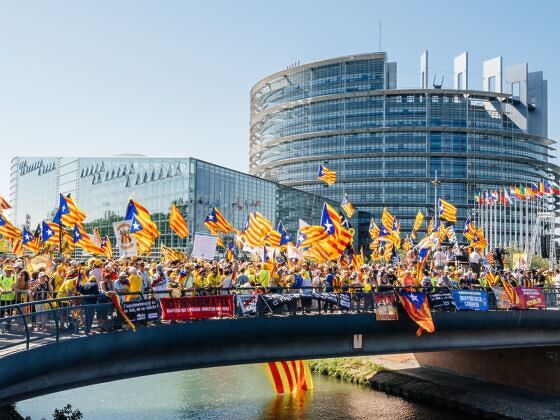Catalonia — that rebellious, anarchist, andinsanely beautiful region of Spain — already feels like an independent state. For years the region relished a striking level of autonomy from the central government.
But in 2010, the Spanish constitutional court rolled back much of that autonomy, setting off renewed calls for independence. Last year almost to the day, Catalonia held a non-binding vote on independence. The people voted for it, but the turnout was low. And, anyway, it wasn’t recognized by Spain.
